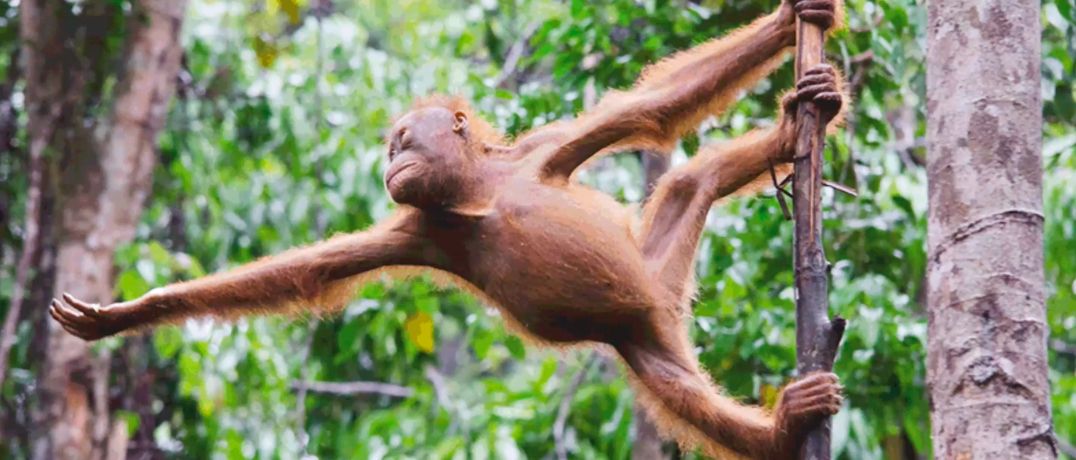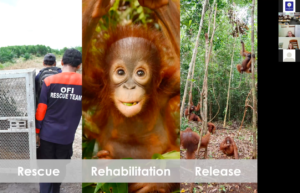Dr Biruté Galdikas Inspires Students


The world’s leading primatologist in studying orangutans, Dr Biruté Galdikas, today gave an online talk with Q&A to pupils at The Mount and many other schools.
Speaking live from the American West Coast, Dr Galdikas said she was delighted to be speaking with the schools and appreciated the opportunity. “For the last 50 years I have been studying a population of wild orangutans and working to protect orangutans and their tropical rainforest habitat in Indonesian Borneo,” she said. She described her journey as having had times of joy stemming from the opportunity to work with orangutans, “an opportunity which no one will ever have again because Borneo in the last 50 years has changed so much. The forests have disappeared, the numbers of orangutans have gone down, and Kalimantan is a different place today to what it was 50 years ago,” said Dr Galdikas.
The title of her talk was “Concern for Orangutans = Concern for Mother Earth”. She shared video footage and insights of her experiences from 1971 onwards, and talked about the challenges facing orangutan conservation today. She gave the audience good, practical advice for ways they can help orangutans to survive and to prevent the destruction of their disappearing habitats.
The online talk was attended by students from schools in York and the surrounding areas as well as girls’ schools throughout the UK. During the Q&A, some schools were able to ask a question of Dr Galdikas. The pupils’ questions were:
Giving her summary of Dr Galdikas’ presentation, Abigail in College I said, “I can speak on behalf of all of us when I say that I found your talk very admirable and inspiring through your amazing work over the years. You’ve clearly made a great difference in protecting orangutans and their habitats, having spent your life’s work dedicated to them. Poaching, pollution and deforestation has unfortunately taken a great toll on the quality of orangutans’ lives, leaving not only them but many other thousands of species homeless and in poor condition. Some more examples of activities which destroy the rainforest include illegal mining, logging and forest fires. The Orangutan Foundation International helps support conservation, help to rescue, rehabilitate and rehabitat the orangutans, into an healthier and happier environment. Having studied orangutans for fifty years, Dr Galdikas has worked to protect them and their habitats. She has spent years learning about the nature and characteristics of them, and has helped provide detail about orangutan ecology through her research. But how can we help? We can use less palm oil by looking at labels of food products and trying to find an alternative, even though our favourite foods like Nutella and Oreos have palm oil in them so you can even write to companies and ask them to find a different approach. You can foster a baby orangutan through Orangutan Foundation International and support charities which protect orangutans. Plant trees. Every little helps, really, the less tress, the less carbon, and we can help mitigate the effects of climate change together.”
